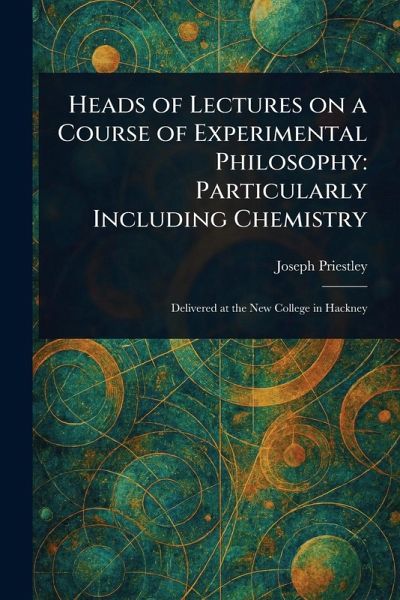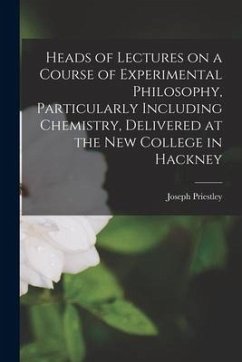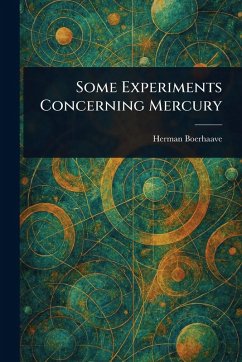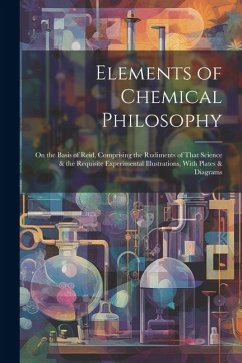
Heads of Lectures on a Course of Experimental Philosophy
Particularly Including Chemistry
Versandkostenfrei!
Versandfertig in über 4 Wochen
17,99 €
inkl. MwSt.
Weitere Ausgaben:

PAYBACK Punkte
9 °P sammeln!
Explore the foundations of modern chemistry with Joseph Priestley's "Heads of Lectures on a Course of Experimental Philosophy: Particularly Including Chemistry." This meticulously prepared reprint offers a fascinating glimpse into 18th-century science and the evolution of chemical thought. Priestley, a key figure in early chemistry, presents a comprehensive overview of experimental philosophy, with a particular focus on chemistry. This volume captures the spirit of scientific inquiry that characterized the era, offering insights into the experiments and theories that shaped our understanding o...
Explore the foundations of modern chemistry with Joseph Priestley's "Heads of Lectures on a Course of Experimental Philosophy: Particularly Including Chemistry." This meticulously prepared reprint offers a fascinating glimpse into 18th-century science and the evolution of chemical thought. Priestley, a key figure in early chemistry, presents a comprehensive overview of experimental philosophy, with a particular focus on chemistry. This volume captures the spirit of scientific inquiry that characterized the era, offering insights into the experiments and theories that shaped our understanding of the world. Whether you're a student of science, a history enthusiast, or simply curious about the origins of chemistry, this book provides a valuable window into the past. Delve into the lectures and discover the groundwork upon which modern chemical science was built. A testament to enduring scientific principles, this work remains relevant for anyone seeking a deeper understanding of chemistry's historical roots. This work has been selected by scholars as being culturally important, and is part of the knowledge base of civilization as we know it. This work is in the public domain in the United States of America, and possibly other nations. Within the United States, you may freely copy and distribute this work, as no entity (individual or corporate) has a copyright on the body of the work. Scholars believe, and we concur, that this work is important enough to be preserved, reproduced, and made generally available to the public. We appreciate your support of the preservation process, and thank you for being an important part of keeping this knowledge alive and relevant.














